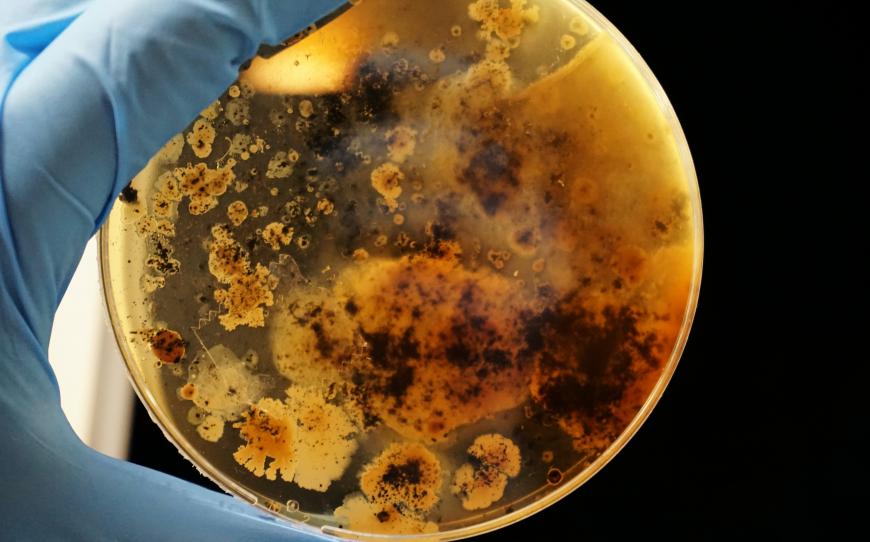Microorganisms in natural environments represent a largely untapped resource for novel enzymes and bioactive metabolites that can be used in industrial biotechnology. Furthermore, the use of beneficial microorganisms to promote the growth of crop plants or to degrade pollutants represent rapidly expanding areas of environmental biotechnology. The course covers methods used and approaches taken in applied microbiology. Initially the course introduces screening for microorganisms with a desired function, then presents approaches to identify and characterize selected microorganisms, and finally addresses how you assess the performance of selected microorganisms in a complex environment.
The aim of the course is to give the students practical and theoretical skills in applied microbiology at an advanced level. During the course, the students will obtain hands-on experience with a range of techniques for characterization of microorganisms and for studying interactions between microorganisms. The techniques include: PCR genotyping, bacterial genomics, single cell detection techniques, reporter gene technology, methods to determine viability, quantitative PCR, targeted environmental transcriptomics, and metabolite analyses. Furthermore, the students will achieve theoretical knowledge on the principles of the above methods and their application in studies of environmental biotechnology.
The following experimental areas of applied microbiology will be covered:
- Microbial bioprospecting and population analysis: Screening for enzyme or metabolite producers; genotyping of microorganisms and assessment of biodiversity of cultivated populations.
- Detection of specific microorganisms: Molecular methods to determine abundance and fate of specific microorganisms in complex environments.
- Activity and function of specific microorganisms: Methods to demonstrate metabolic activity, specific gene expression and metabolite production by microorganisms in complex environments.
- Bacterial genome assembly and annotation.
- The application of the methods included in the course will be based on examples from the below areas:
- Extremophilic organisms as sources for novel enzymes or bioactive metabolites. Applications of extremophilic microorganisms and their products.
- Microbial interactions involved in biological control of plant pathogens through production of antifungal metabolites, as well as in microbial biofertilization.
- Aquaculture microbiology with a focus on taste-and-odour producing bacteria in fish ponds and their impact on fish quality.
Prerequisites
The students are expected to have passed a basic course in microbiology.
Academic qualifications equivalent to a BSc degree is recommended.
Application procedure
Self Service at KUnet
Learning outcomes
After completing the course the students should be able to:
Knowledge:
- Display an overview of methods used for detection of microorganisms and their activity in complex environments.
- Account for the principles of the selected methods used for detection of microorganisms and their activity in complex environments.
- Classify microorganisms phylogenetically and understand the principles behind genome annotation.
Skills:
- Reflect over the properties of qualitative and quantitative methods for detection of microorganisms in complex environments.
- Evaluate approaches for analysis of bacterial genome DNA sequences.
- Evaluate advantages and disadvantages of methods for investigation of microorganisms in complex environments
- Communicate knowledge in the area covered by the course.
Competences:
- Select and discuss basic and advanced methods for investigation of microorganisms in complex environments.
- Formulate a strategy for, how individual methods covered by the course can be integrated into a research strategy to reveal the performance of selected microorganisms used in an environmental biotechnology project.
- Evaluate the application potential of microorganisms within biotechnology in relation to environmental sciences.
Files/Documents
ISCED Categories

